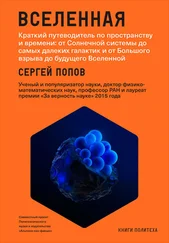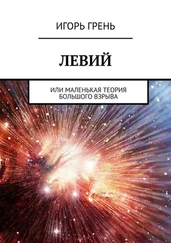неисчислимым разнообразием миров : Guthrie, History , vol. 2, 404–407.
пространство отделяет атомы : Leucippus and Democritus, The Atomists , 184–88.
только при прямом контакте : Guthrie, History of Greek Philosophy , vol. 2, 418–19, 498; Leucippus and Democritus, The Atomists 73, 74, 88.
едва ли существовало жизненное : Guthrie, History of Greek Philosophy , vol. 2, 388; Leucippus and Democritus, The Atomists , 159, 195.
эта аналогия появилась столетия спустя : Berryman, The Mechanical Hypothesis in Ancient Greek Natural Philosophy , 33–39.
Отдельные атомы безжизненны : Dijksterhuis, The Mechanization of the World Picture: Pythagoras to Newton , 11–12, 495–98.
отсутствие цели и смысла : там же, 77–78.
сжечь его книги : Leucippus and Democritus, The Atomists , 56–57.
получившей Пулитцеровскую премию : Greenblatt, “The Answer Man.”
лишенной хозяев надменных : Lucretius, The Nature of Things , 68.
мир кишит жизнью : Kearney, Science and Change, 1500–1700 , 23–24, 26–33.
разработал сложную теорию : Newstead, “Aristotle and Modern Mathematical Theories of the Continuum.”
к расположению атомов : Hesse, Forces and Fields , 62.
Аристотель питал отвращение: Aristotle, Physics , book 4, parts 7–9.
относительно соседних объектов : Barbour, Absolute or Relative Motion? The Discovery of Dynamics , 84–91.
импульс , передающийся через среду : Hesse, Forces and Fields , 79–80.
Современники Аристотеля в Китае : Needham and Wang, Science and Civilisation in China , vol. 4, part 1, 6–8.
образ мыслей Аристотеля : Lloyd, Early Greek Science , 103–9; Rovelli, “Aristotle’s Physics: A Physicist’s Look.”
подтвердить или опровергнуть : Lloyd, Early Greek Science , 139–42.
сделать Вселенную постижимой : Hesse, Forces and Fields , 72.
исключительно при соприкосновении : там же, 67–73.
изменения положения тела : Aristotle, Physics , book 7, part 1, 242b59.
Аристотель пытался разработать : Jammer, Concepts of Space: The History of Theories of Space in Physics , 17–22.
полукоза - полуолень или сфинкс : Aristotle, Physics , book 4, part 1, 208a27.
многих странных камней : Hesse, Forces and Fields , 57–58.
известной как Магнисия : Melfos, Helly, and Voudouris, “The Ancient Greek Names ‘Magnesia’ and ‘Magnetes’ and Their Origin from the Magnetite Occurrences at the Mavrovouni Mountain of Thessaly, Central Greece. A Mineralogical-Geochemical Approach.”
Фалес также восхищался янтарем : Guthrie, History of Greek Philosophy , vol. 1, 66.
По - гречески янтарь : Gilbert, On the Magnet , 46–47.
Китайские ученые обнаружили : Needham and Wang, Science and Civilisation in China , vol. 4, part 1, 230, 232.
пары , которые вытесняют воздух : Guthrie, History of Greek Philosophy , vol. 2, 426.
проигнорировал ее : Hesse, Forces and Fields , 57.
вращающимся прозрачным сферам : Kuhn, The Copernican Revolution , 79–80; Jammer, Concepts of Force , 41–42.
подталкивают его внутрь : Guthrie, History of Greek Philosophy , vol. 2, 400–413; Leucippus and Democritus, The Atomists , 94–95, 179–84.
не совершается на расстоянии : Saint Thomas Aquinas, The Summa Theologica of Saint Thomas Aquinas , book 1, query 8, article 1, reply to objection 3.
чем больше ученые вдумывались : Kuhn, The Copernican Revolution , 101–104, 115–17.
магнит притягивает : Hesse, Forces and Fields , 87–90.
в процессе « соития » : Gilbert, On the Magnet , 1, 208.
доказательством существования атомов : Kuhn, The Copernican Revolution , 89–90, 231–37.
все явления природы : Descartes, The Philosophical Writings of Descartes , vol. 3, The Correspondence , 7.
всесторонность , как и Аристотелева : Dijksterhuis, The Mechanization of the World Picture , 408.
послужили манифестом : Kearney, Science and Change , 151–60.
преемственность очевидна : Dijksterhuis, The Mechanization of the World Picture , 417; Garber, Descartes’ Metaphysical Physics , 119.
просто геометрическая фигура : Descartes, Principles of Philosophy , 40–41.
свободно и прямолинейно : Suppes, “Descartes and the Problem of Action at a Distance,” 149–50.
не требуют доказательств : Descartes, Principles of Philosophy , 69.
предвосхитил современные теории : Westfall, The Construction of Modern Science: Mechanisms and Mechanics , 34–36.
крошечных винтов или рычагов : Hesse, Forces and Fields , 106–107.
алхимическую лабораторию в сарае : Westfall, “Newton and Alchemy,” 318–19.
Фейнман увлекался этим : Feynman, “Surely You’re Joking, Mr. Feynman!”: Adventures of a Curious Character , 332–36.
продукт магии : Kearney, Science and Change , 22–25, 48; Westfall, “Newton and the Hermetic Tradition,” 195; Henry, The Scientific Revolution and the Origins of Modern Science , 55.
Читать дальше
Конец ознакомительного отрывка
Купить книгу
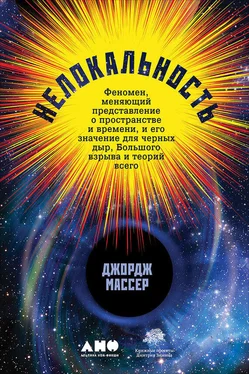
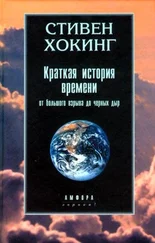
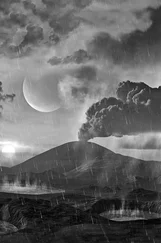
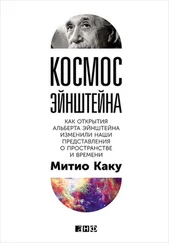



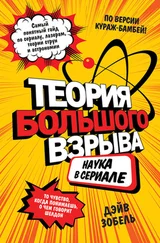
![Стивен Хокинг - Краткая история времени. От Большого взрыва до черных дыр [litres]](/books/416997/stiven-hoking-kratkaya-istoriya-vremeni-ot-bolshogo-thumb.webp)
